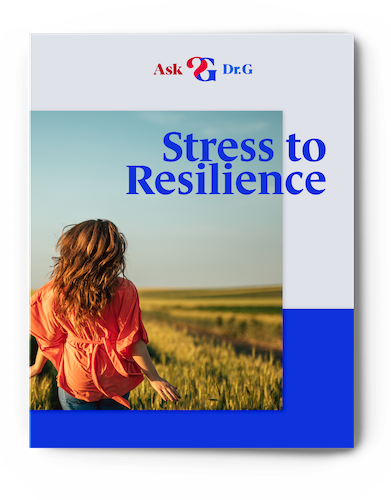 Are there games my kids should just never play?
Are there games my kids should just never play?
An attendee at the first taping of “iQ: smart parent”
A few weeks ago I had the honor of interviewing some major gaming experts to get some guidance about what games I should let my kids play, and how often. WQED has launched a new program called “iQ: SmartParent.” The first episode sets out to solve this dilemma.
Jesse Schell of Schell Games, and formerly of Disney Imagineering, explains what kids who never game may miss. Nikki Navta, creator of Zulama, opens up a new world of gaming in the classroom, and challenges our ideas that kids should “check their screens at the door” when they go to learn. Dr. Brian Primack, internationally acclaimed researcher on the effects of media on health, delineates the specific dangers of video games, and how to avoid them.
I learned some amazing facts about video gaming, and the good it can do our kids.
But the experts are clear about the dangers games can pose to our kids. Aggression, desensitization, isolation, fear. Certain games increase the rates of all of these in kids and adults. So what should we keep in mind?
- First person shooter games carry the most risk. These are games in which the player is creating at least some of the violence. Playing this role too often or for too long increases the chances that a person will react to conflict with aggression.
- Witnessing a lot of violence desensitizes us to pain and suffering. So even if our character in the game is trying to avoid the fires or bombs or mobs, just watching it happen on the screen (in games or movies or cartoons) changes the way we think about violence, makes it seem like “not a big deal.” Even when we see it in real life. And when the violence is accompanied by humor, that desensitization gets a lot worse.
- Playing too much screen can lead to isolation. If the game requires us to collaborate with other players (even ones we’ve never met) then this is much less of a problem.
- Stressful situations in the virtual world can increase anxiety in the real world. This is not true for everyone, so you have to know your child.
- How much we play matters. Playing games with violence more frequently makes these problems more likely. Just like eating an ice cream sundae once a week is a lot less dangerous than having three every day.
Luckily, games that meet these “negative criteria” are a small percentage of the games available! There are so many GREAT reasons to play video games, that post is coming in a week! Stay tuned…
It’s important to remember, that, like the food they eat, our kids will make more and more of their own decisions about their media consumption as they get older. So that means we have to talk to our kids about this now! Stay involved, play the games they play and talk about them. Give children and teens the knowledge and skills they need to make great media consumption decisions most of the time.
And please check out the show and the iQ: smartparent community to see other ways and reasons to use video games for good! Airing on WQED Feb 7th at 8:00pm and Feb 10th at 3pm, and it will be available online a little later in the month. And check out Common Sense Media for great information about games, apps and just about any media your kids might encounter.
Are there games you will not allow your kids to play?




7 thoughts on “Which are the Dangerous Video Games?”
Very interesting! My little guy is such a gamer.
Thank you Jessica, my 4 guys too!
I really appreciate this post and Dr. G’s underlying approach to video games exhibited in it. As a pediatrician, I counsel every parent that I can to be aware of the video games that their children are playing and make DECISIONS regarding what they allow their kids to play rather than taking a passive approach. I am very often surprised by parents who express disapproval of what their young children play and yet continue to allow them access to whatever they want. Of course, this is true for many forms of media, not just video games.
I limit my own children’s exposure to violent video games, and I limit their overall use of ‘screen time’. It is not only acceptable for parents to set limits, but it is a duty. As Dr. G points out, much like establishing good eating habits, establishing healthy media consumption is an important part of growing up. The years we have to make an impact on the habits our children are limited. We should not waste them.
My one criticism of this article is similar to my argument with many who take stronger anti-video game stances. We should be very careful when ascribing causation to correlative evidence. While it has been shown that there is a correlation between violent media consumption, including video games, and violent/aggressive behavior, causality has not at all been established. In fact, there is very little evidence to support the claim that violent video games lead to violent behavior. One might imagine that violent/aggressive children may have an increased appetite for violence in their media. This may lead to a correlation between violent video games and violent behavior, but it does not mean that violent video games cause violent behavior. In fact, children without this tendency may play violent video games without exhibiting unwanted behavior.
So, why do I limit my own children’s exposure to violent media? In a nutshell, the verdict just is not in yet. I don’t think that exposure to violent media can be helpful for anyone’s developing mind. Whether or not it increases violent behavior, I want my children to be as empathetic as possible, and desensitization to pain and suffering has pretty clearly been shown. Perhaps violent media should be avoided by all of us, as desensitization is not something that we should be pursuing.
In summary, the most important thing is for parents to be proactive, making decisions about what is best for their children rather than merely spectating while their children develop habits that may stick with them the rest of their lives.
Note – The ESRB (www.esrb.org) provides valuable information in addition to simple age recommendations for every video game with a physical release in the US. This can really help parents make good decisions regarding specific video games and their children.
Dr. Patton,
Thank you for your insightful response! I agree that we can’t say that correlation = causation. I really hope that you will be able to watch the show on WQED (livestreamed on their site to be more accurate) and tell me what you think of Dr. Primack’s views and take on the research. In truth I hope that we will see causation ruled out for these games, but the correlation together with my own common sense – that says kids are affected even by what they pretend to do – makes me cautious just as you are. I like ESRB and Common Sense Media.org as well.
Again, thanks for your input. I appreciate the conversation!
Hi! I am 21 and I thought I could give some insight on this subject as someone raised with video games!
I don’t have any kids or anything but I was one at some point (haha) and I am thinking about going into this field after my undergrad.
There is a game rating system, E for everyone, E 10+ for kids 10 and up, T for teens, OT is 16+, and MA is for adults.
This rating system works pretty well, and with this descriptors on the back of the box, there’s a description of the ‘risque’ things in the game, such as cartoon violence or cursing or drinking.
So, that’s a good way to know if a game is safe or not! That’s how I was policed as a kid.
And limiting screen time to designated points in the day is a good idea too I think. I played Pokemon obsessively. But I also was abused a lot as a kid, so I used the games as an escape.
But video games can teach kids a lot. Pokemon helped me feel more in control of my situation because in game you’re a child that tames monsters and stops bad adults from being mean to the monsters and other people.
Age appropriate games are best for that. FPS (First person shooters) are more like action movies. (overdramatic Male Character shoots Bad Guys and saves the Girl also there are EXPLOSIONS! WHOA!)
All in all, I recommend the Pokemon series, and of its spinoffs (there are lots of pokemon games. I assure you.) Also, some other good games are the zelda games, but those are better for older kids, 10 ish I’d say. Pokemon I started at age 7 though, and you can use it as a fun way to express creativity outside of the game.
Have them draw characters, or themselves in the game, or have them make stories. The possibilities are endless!
This is really useful, thank you!
Comments are closed.